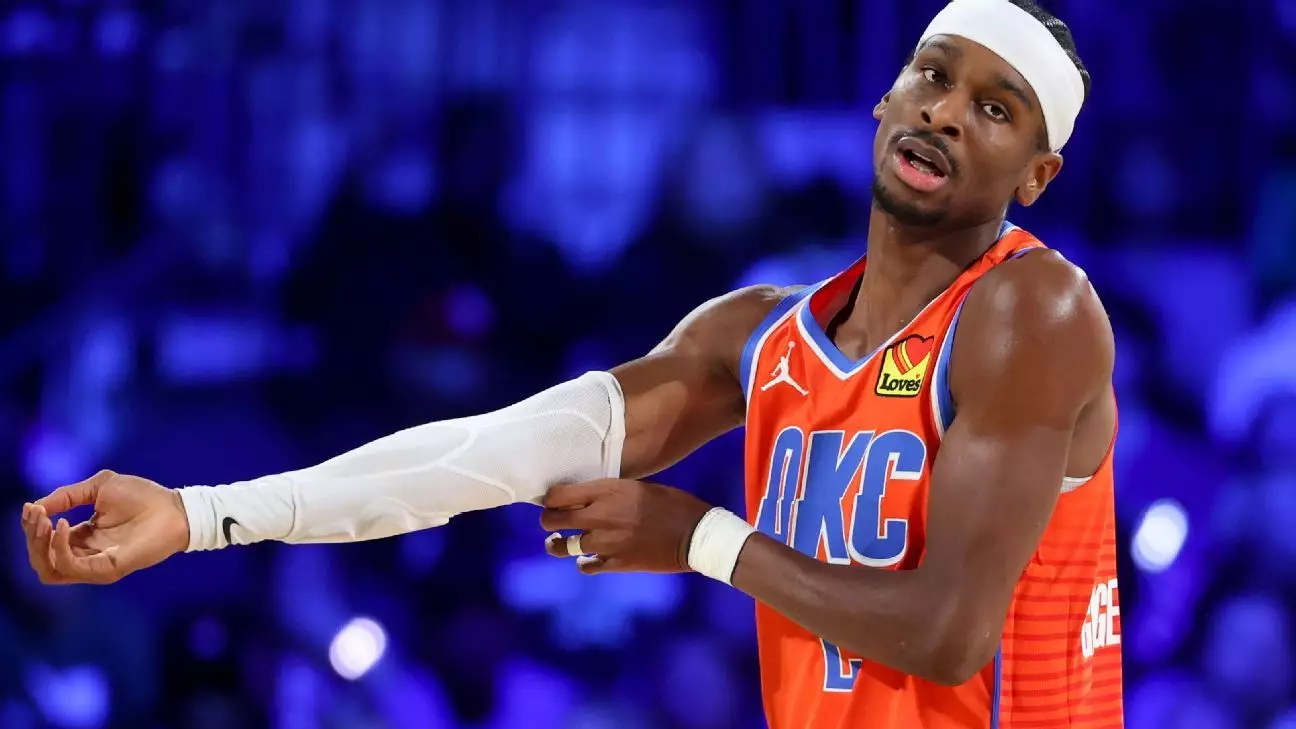The Oklahoma City Thunder’s subpar performance in the recent NBA Cup final against the Milwaukee Bucks revealed various glaring issues that must be addressed as the season progresses. With a final score of 97-81, the Thunder not only faced a substantial defeat but also recorded striking lows in offensive efficiency. This game raised critical questions about the team’s ability to maintain composure and precision under pressure, especially against top-tier competition.
The Thunder delivered their worst offensive showing of the year, managing only 81 points while achieving a dismal shooting percentage of 33.7% and a mere 15.6% from beyond the arc. Such statistics can be jarring for a team that aspires to compete at a high level in the NBA. Thunder head coach Mark Daigneault acknowledged the need for improvement, indicating that he could have better facilitated scoring opportunities. He emphasized the importance of learning from the experience, but the reality is that such defeats can serve as severe wake-up calls.
The spotlight fell particularly on Shai Gilgeous-Alexander, who is typically the team’s driving force. With only 21 points on 33% shooting, Gilgeous-Alexander’s performance was markedly below his season averages of 30.3 points per game on a respectable 51% shooting. He faced formidable defense from the Bucks’ Andre Jackson Jr., yet Gilgeous-Alexander himself admitted that the blame didn’t lie solely with the defense. His acknowledgment of personal off-nights reflects the internal challenges players face when it comes to consistency.
Statistically one of the most troubling indicators for the Thunder was their three-point shooting. By the end of the game, the Thunder managed just five successful attempts from 32 tries. In contrast, their expected three-point percentage based on shot quality was 34.9%. This stark contrast illustrates the misalignment between potential and reality. Forward Jalen Williams pointed out that the team created quality looks yet failed to convert them.
The troubling reality is that the Thunder’s inability to shoot effectively from long distance not only hampers their scoring potential but also affects their overall offensive strategy. It is a troubling trend, underscoring the importance of perimeter scoring in today’s fast-paced game. When a team struggles in this category, it allows the opposing team to focus more on tightening their defense in the paint, exacerbating the problem.
During the first half of the game, the Thunder managed to stay competitive by attacking the paint with vigor, scoring 26 points in that area and converting 13 of their 16 free throws. However, the second half exposed their fragility as they managed only 31 points, hinting at a decline in energy and strategy. Rather than maintaining their aggressive drive to the rim, Oklahoma City reverted to an ineffective perimeter game, coming away with just eight points in the paint during the final half.
The ability to adapt is crucial in basketball, especially when the opposing team begins to clamp down defensively. Thunder guard Alex Caruso noted that the team missed several key shots that could have swung momentum. These insights illuminate not just the need for physical skill, but also the importance of mental fortitude in overcoming adversities during pivotal matchups.
The Thunder’s defeat serves as more than just a missed opportunity; it highlights essential areas for development. From offensive consistency to effective perimeter shooting and adaptability throughout a game, building resilience in these aspects will be pivotal for the team moving forward. Remove emotions from the equation and focus on execution, and perhaps this thrashing can morph into a stepping stone for future successes rather than a mere footnote in an arduous season. Learning to maintain consistent performance, particularly against elite teams like the Bucks, is paramount for the Thunder as they navigate the rigors of an NBA season.

